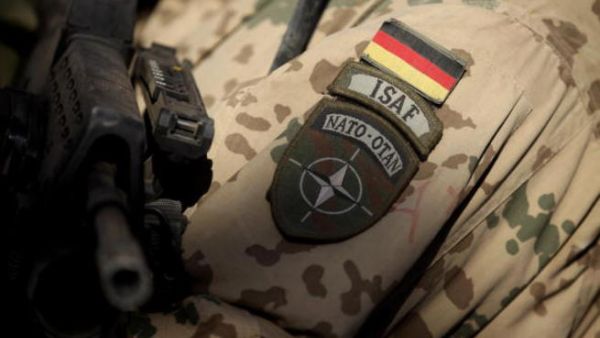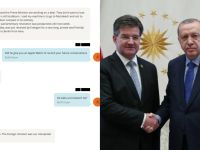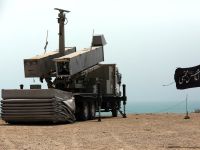Aysar Hussein was stopped by three men in a navy blue car at 2:30 in the morning. He was heading home after a gathering with friends when the car blocked his path off Haddah Road in Sana’a.
“After interrogating me as to where my house was, they said they were secret police. Then they asked me to get into the car with them,” said Aysar.
While he was thinking of a way out, a police officer in uniform saw the commotion and approached the car. As he raised his rifle at his pretended plain clothes colleagues, they fled the scene leaving Aysar shaken but happy that he survived the incident in one piece.
“The real police officer noted down the car’s number and told me that there had been several incidents when criminals posed as secret police and either extort money from citizens or even abduct them,” Aysar said.
Sociologist and expert in socio-political science, Prof. Fuad Al-Salahi of Sana’a University, explained that in Yemen and in many countries with a similar history, the relation between citizens and law enforcement authorities is one of fear and distrust.
“The security personnel are a symbol of oppression in society, while the security services view citizens, especially outspoken ones, as a source of trouble,” said Al-Salahi. It is easy for people, whether officials or criminals, to use this cultural fear for personal gains, he explained.
Article number 173 of the penal code states that anyone convicted of posing as a state official or unrightfully wearing an official uniform should be imprisoned for up to one year and pay a fine. However, the law has not deterred offenders, who often escape justice.
Residents of Madhabah area northwest of Sana’a can share a related experience. A man in their neighborhood who owned many types of weapons pretended to be a security officer. The man terrorized his neighbors by threatening to lock them up if they did not give him money.
“We knew of incidents when innocent people had been put in jail for months and sometimes years just because they made an influential security person angry. So we paid whatever this man asked us to pay and tried to avoid him,” said a 50 year old man from Madhabah area.
The sham was discovered when relatives of the supposed officer came for a visit and talked to the neighbors. The locals stopped paying him money, but he was not apprehended and continued to carry small arms in the city.
According to a national security official, his department recently arrested a man who pretended to be a member of the national security services using a fake ID card.
“Citizens must demand to see the ID if they are in doubt whether somebody is a security officer. If they are suspicious about this person, they should immediately call 199 and let the real police do the rest,” he advised.
However, many Yemenis would rather drop the issue than raise it through official security channels.
“The problem is that we have no faith in the security or the judicial systems. Many times this is because people do not know about their rights, but the main reason is that officials abuse their power,” said a woman who used to own a small grocery shop in Sana’as Al-Hasba district.
She fell victim to two men who posed as undercover security officers and regularly demanded money in return for protecting her shop.
“They told me that if I don’t pay my shop would be robbed. So I paid. Now because of that and other reasons I am out of business,” she complained.
Abusing the uniform
While some pose as plain clothes security officers, others use real or fake uniforms and IDs to deceive their victims.
Most Yemeni families in Sana’a have a relative who serves in the army. While there are no official numbers, the total strength of the army is estimated at about 600,000 soldiers, who all have military IDs and uniforms.
The army and the police hand out official uniforms to authorized personnel, but it is also possible to buy them in specialized shops. On Al-Qaiyada Street in Sana’a, for example, a uniform top costs no more than USD 20.
Customers purchasing full uniforms usually have to show their security ID cards. However, one can buy a part of the uniform such as the vest or a cap without an ID.
“I’m a member of the traffic police and I have come here to buy new boots and a cap. I was not asked for my ID,” said Ali Hassan as he was purchasing his items.
With the right demeanor, men wearing uniform coats over their civilian clothes can get away without paying for public transport or even meals.
N. M. works as driver of a public mini-bus. He has been denied his money several times by men wearing uniform or only parts of it.
“They would get off without paying and if I shout at them they would flash their guns. So naturally I get scared and just drive on. I don’t really know whether they are security men or not, I just know they wear the uniform and have guns,” he said.
Weapons galore
Just as purchasing a uniform is unproblematic in Yemen, so is buying a weapon. Despite several state-run campaigns aimed at reducing the number of arms in the main cities, there are several markets were one can buy almost any type of gun.
At the outskirts of Sana’a there are three such markets: Al-Jamaia market in Arhab, Al-Hatarish market in Bani Hushaish and Juhana market in Khaulan. The range of weapons on offer includes hand grenades, machine guns, artillery guns and bazookas. The products are mostly made in Russia, Belgium and USA. Prices have doubled since the last outbreak of conflict in the north. Today, a simple gun can be purchased for a little more than USD 200, a Kalashnikov costs about USD 700.
The international weapons expert Dick Miller at the High Institute for International Studies in Geneva estimates the total number of weapons in Yemen at little more than seven million pieces. A report published by his institute in November 2009 points to cultural norms and increasing population numbers that continue to raise the demand.
According to Miller 200.000 weapons are being bought in Yemen every year. It seems unlikely that respectable citizens are the only buyers.
Yemen’s intelligence bodies
In Yemen there are four intelligence and security services: the National Security Apparatus, the Political Security Office, the Military Intelligence Department and the Anti-Terrorism Unit.
The National Security Apparatus was established in 2002 by presidential decree to “collect and provide intelligence information on the national security issues of the country. It is responsible to detect and fight terrorism and protect the nation’s borders from any exterior infiltrations.”
The apparatus constitutes the information hub of security issues in Yemen and has control over the country’s and cities’ entry points.
The Political Security Office is the oldest security intelligence institution in Yemen. It was established in 1990 during unification as a merger of the intelligence bodies of north and south.
The office used to handle all intelligence issues prior to establishment of the National Security Apparatus. Today it focuses on internal political issues. However, being the oldest in the arena, it has the advantage of having more detailed historical or background files on the national security issues such as the Islamist movements. In addition, its staff includes high ranking officials from the two intelligence services of the north and the south while the National Security Apparatus is mostly run by newcomers.
The Military Intelligence Department used to perform various intelligence tasks. Today it mainly focuses on potential military coups, chain of command in the army and loyalty of soldiers to their commanders. The department is the principle reference during wars and armed conflicts.
The Anti-Terrorism Unit was established in 2003 in response to the international war on terror. It has a small section that deals with women.
The Political Security Office and the National Security Apparatus are financially and administratively independent and report directly to the president. The Military Intelligence Department is affiliated with the armed forces and reports to its commander-in-chief. The Anti-Terrorism Unit is affiliated with the Ministry of Interior and reports to the minister who in turn reports to the president.
By Nadia Al-Sakkaf and Ayham Al-Otoom








